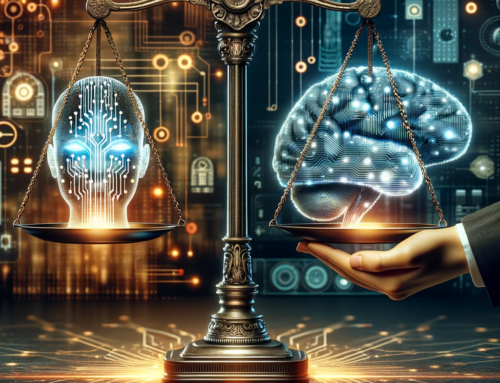In the rapidly evolving world of Artificial Intelligence (AI), the discussion around ethics has become as crucial as the technology itself. As AI systems increasingly influence various aspects of our lives, from healthcare and education to finance and security, the ethical implications of these technologies have garnered significant attention. This article explores the ethical landscape of AI and the importance of integrating ethical considerations into AI development and deployment.
The Emergence of Ethical Concerns in AI
The advancement of AI has been meteoric, bringing with it a host of benefits, such as improved efficiency, enhanced data processing, and automation of mundane tasks. However, as these systems become more complex and autonomous, their decision-making processes can have far-reaching consequences. Issues such as data privacy, algorithmic bias, and accountability have come to the forefront, raising questions about the ethical use of AI.
Understanding Algorithmic Bias
One of the most pressing ethical concerns in AI is the issue of bias. AI systems learn from data, and if this data is biased, the AI’s decisions and predictions will likely be biased as well. This can lead to unfair outcomes, particularly in sensitive areas such as hiring practices, law enforcement, and loan approvals. Addressing algorithmic bias requires a concerted effort to ensure that AI systems are trained on diverse, inclusive, and representative data sets.
Data Privacy and Security
The use of AI often involves the collection and analysis of large amounts of data, raising concerns about privacy and data security. Protecting personal information from unauthorized access and ensuring that data is used ethically is a major challenge. This is especially true given the increasing sophistication of AI systems capable of analyzing and interpreting personal data in ways that were not possible before.
Accountability and Transparency
AI systems can sometimes operate as ‘black boxes’, with decision-making processes that are opaque and difficult to understand. This lack of transparency can be problematic, especially when decisions have significant impacts on individuals or society. Ensuring that AI systems are transparent and that their decisions can be explained and justified is vital for building trust and accountability.
The Role of Ethical Frameworks and Guidelines
To address these challenges, there is a growing movement towards developing ethical frameworks and guidelines for AI. These frameworks typically emphasize principles such as fairness, accountability, transparency, and respect for human rights. Many organizations and governments are now working to implement these principles into their AI strategies to ensure that AI technologies are developed and used responsibly.
The Way Forward: Responsible AI
The future of AI should be guided by ethical considerations. This involves not just compliance with laws and regulations, but a deeper commitment to developing AI in ways that are beneficial and non-harmful to society. It requires the collaboration of AI developers, users, ethicists, policymakers, and the public to create AI systems that are not only technologically advanced but also socially responsible.
Conclusion
As AI continues to shape our world, the importance of ethics in AI cannot be overstated. By proactively addressing the ethical challenges posed by AI, we can harness its potential while ensuring that it serves the greater good. The journey towards ethical AI is complex and ongoing, but it is a necessary one if we are to realize the full benefits of this transformative technology in a way that respects and enhances our shared human values.


